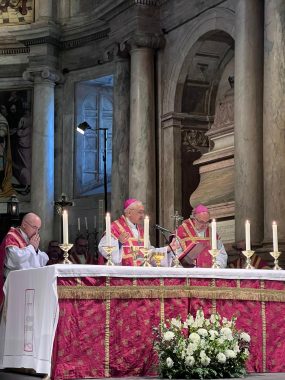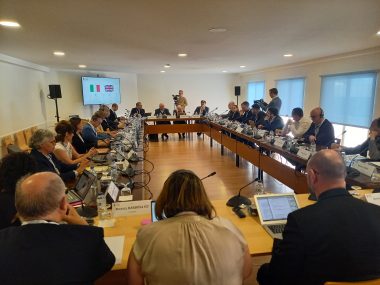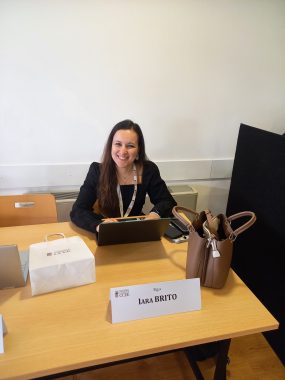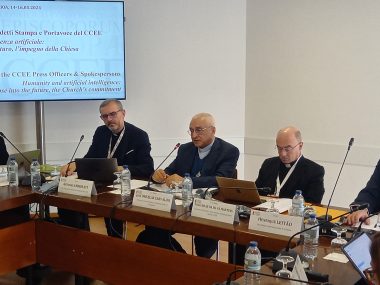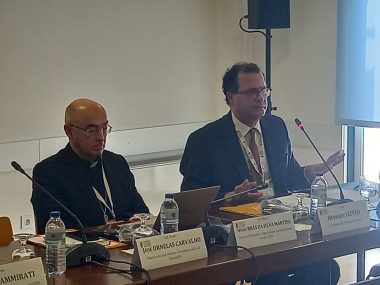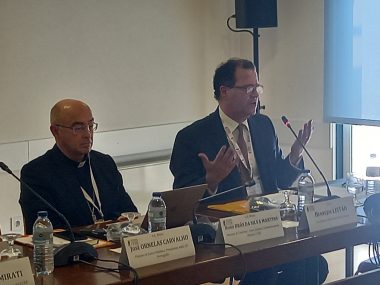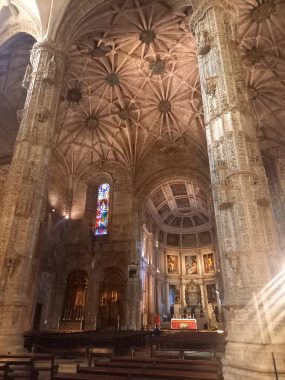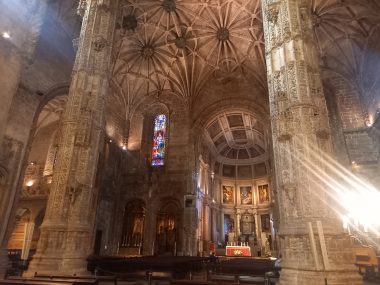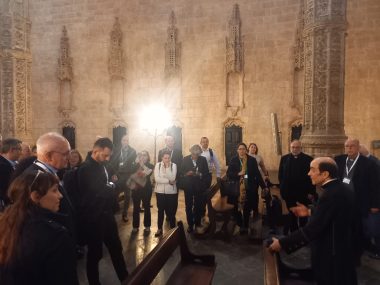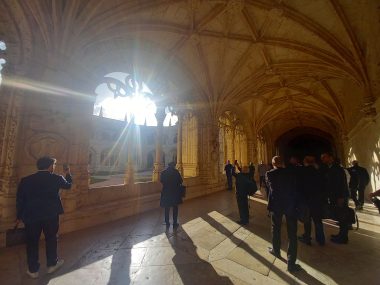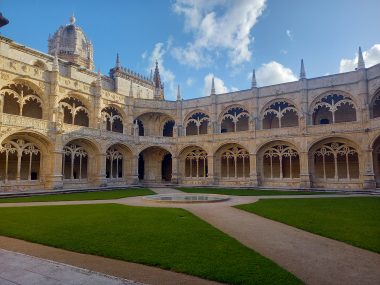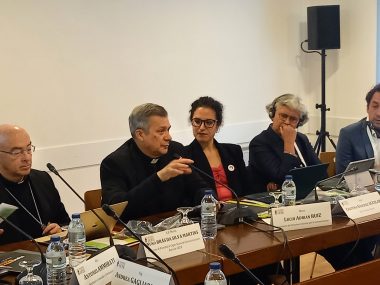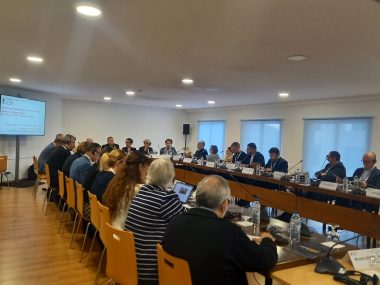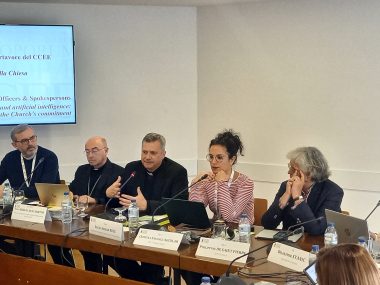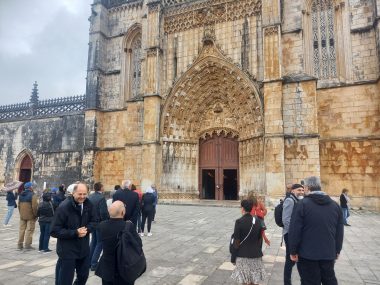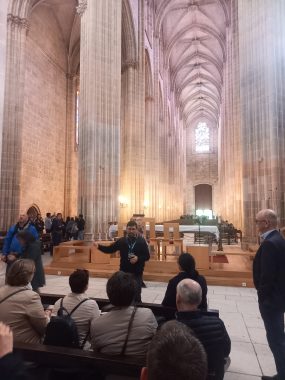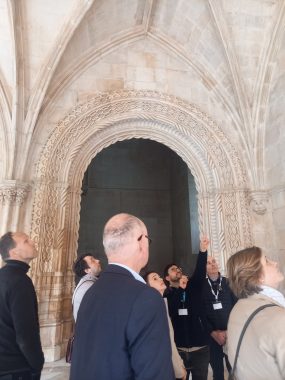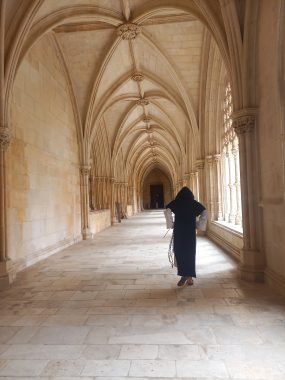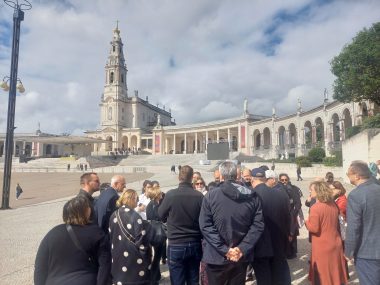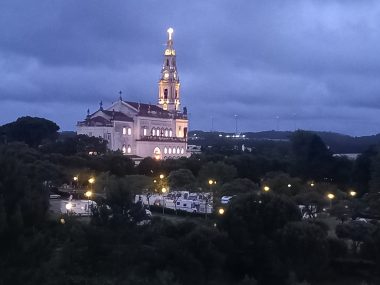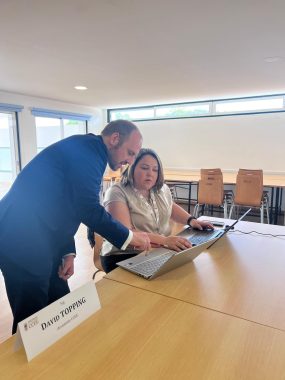The annual meeting of communication officers of the national bishops’ conferences, organised by the Council of the European Bishops’ Conferences, was held in Lisbon from 14 to 16 May. This year’s theme was “Humanity and Artificial Intelligence: a glimpse into the future, the Church’s commitment”. The theme was part of a two-year journey – which began at last year’s meeting in Cyprus – developed by CCEE on the topics of artificial intelligence, fake news, and challenges for communication. The discussion this year was also enriched by the presence of three Catholic media directors, who brought their own views.
During the opening greetings, the Bishop of Leiria-Fatima José Ornelas, President of the Portuguese Bishops’ Conference, provided an overview of the history and situation of the Catholic Church in Portugal. The bishop also emphasised the mission of the Portuguese Church in what were once its colonial possessions. In addition, he highlighted that after the 1974 Carnation Revolution, which ended the dictatorship, the Catholic Church in Portugal had already structured itself in a “synodal” way, that is, greatly involving the laity. Bishop Ornelas also noted that more than 60 percent of Portugal’s social institutions were started, or are owned, by the Catholic Church. The Church in Portugal has also distinguished itself in its response to abuse.
Professor Henrique Leitão, pro-rector of the University of Lisbon, gave a talk on the issues Artificial Intelligence poses to humans. Professor Leitão optimistically outlined the possibilities provided by developments in artificial intelligence, particularly GPT, or generative chats, but at the same time clarified the differences between artificial intelligence and humans.
In more detail, he noted how Artificial Intelligences start from a gigantic amount of data to define solutions based on probabilities, while the human brain starts from a minimal amount of data and finds explanations in it. Finally, he noted the effects that the use of artificial intelligence can have on personal freedom.
Msgr. Lucio Ruiz, secretary of the Vatican Dicastery for Communication, gave an address on the Holy See’s view of artificial intelligence, highlighting that this emphasis on artificial intelligence risks making devices the protagonists. Msgr. Ruiz said that “tools are used, culture is inhabited,” and went on to say that this development represents an educational challenge, but also a challenge at the theological level.
There was then a debate between three Catholic media directors: Cristina Sanchez Aguilar, director of the Spanish weekly Alfa y Omega; Philippine de Saint-Pierre, director of the French Catholic television station KTO; and Branimir Stanić, director of the Croatian Catholic weekly Glas Koncila.
Sanchez Aguilar emphasised the need for professionalisation of religious information, which would both overcome the issue of fake news and address the challenges of artificial intelligence. She invited to see these new challenges as opportunities, while at the same time claiming the importance of “old-fashioned” authoritative information.
Philippine de Saint-Pierre raised the issue of the trust that Church institutions should have in Catholic media, at the same time stressed that the job of Catholic media must be to tell the reality and help institutions, without making any kind of discount precisely in the name of journalistic credibility, which is the best service that can be done.
Branimir Stanić described the situation of the media in Croatia and asked for Catholic media to have a closer approach to the language of the Church, so that the language of the things told is structured and delineated in a way that is correct, deep, and consistent with the facts.
The debates that followed were particularly lively and allowed the spokespersons to confront the different points of view given by the national Churches.
Concluding the work, Bishop Nuno Brás da Silva Martins of Funchal, head of CCEE’s Section for Social Communication, took up the themes of the debate. He said that “we are on the threshold of a new culture,” because “artificial intelligence is ubiquitous and we are immersed in this new culture.”
Bishop Brás addressed the prompt regarding the need to care for human freedom, and pointed out that artificial intelligence, with its pervasiveness, makes the human side even more important. For this, he noted, direct testimonies and human relationships must be restored to centrality.
The date for the next meeting of national communication officers is in Prague from 3 to 5 June 2025.


